Medical
China Rules Out Animal Market and Lab as Coronavirus Origin
Chinese scientists in recent days said they had ruled out both a laboratory and an animal market in the city of Wuhan as possible origins of the coronavirus pandemic, in their most detailed pushback to date against allegations from U.S. officials and others over what might have sparked it. The director of the Wuhan Institute of Virology, at the centre of allegations around a potential laboratory accident, Wang Yanyi, over the weekend told China Central Television that the coronavirus was significantly different from any live pathogen that has been studied at the institute and that there therefore was no chance it could have leaked from there. Separately, China’s top epidemiologist said May 26 that testing of samples from a Wuhan food market, initially suspected as a path for the virus’s spread to humans, failed to show links between animals being sold there and the pathogen. Gao Fu, director of the Chinese Center for Disease Control and Prevention, said in comments carried in Chinese state media, “It now turns out that the market is one of the victims.” The comments, aimed at countering what Beijing perceives as efforts from top U.S. officials to focus solely on China, are unlikely to pacify critics.
French tests show mild infection protects strongly against coronavirus
Tests on French health workers with mild forms of coronavirus show that 98 per cent of them developed antibodies powerful enough to neutralise the virus a month later. The study at two Strasbourg hospitals shows that the antibody response grows for a few weeks rather than fading immediately after infection. Olivier Schwartz, head of the virus and immunity unit at the Institut Pasteur and one of the co-authors of the study, said it was too soon to be certain what the results would mean for the long term. But he agreed that the maintenance of protection for more than a month was good news. “Immunity seems to be conserved and even increased, which is really encouraging,” he said. The research, published as a preprint before peer review, involved 160 health workers who tested positive for infection but did not have serious enough symptoms for admission to hospital. All but one had antibodies against Sars-Cov-2 two weeks after the onset of mild symptoms. Over the following two to four weeks, the proportion of people with neutralising antibodies — the type associated with protective immunity — rose from 79 per cent to 98 per cent.
Strategic
The Battle for R number
Even for countries that have handled their domestic outbreaks successfully, deciding when to start loosening restrictions and in what stages is complex and fraught with risks. The most common measure of whether the disease has been brought under control is the effective reproductionnumber, R, which is the number of secondary cases per infectious individual. An R of 2 means each infectious person spreads the disease to two others. An R above 1 means that the outbreak is still growing. In New York, the worst-hit city in the U.S. by some distance, the R was as high as 8 at its peak, according to some estimates. Singapore peaked at around 4.5.
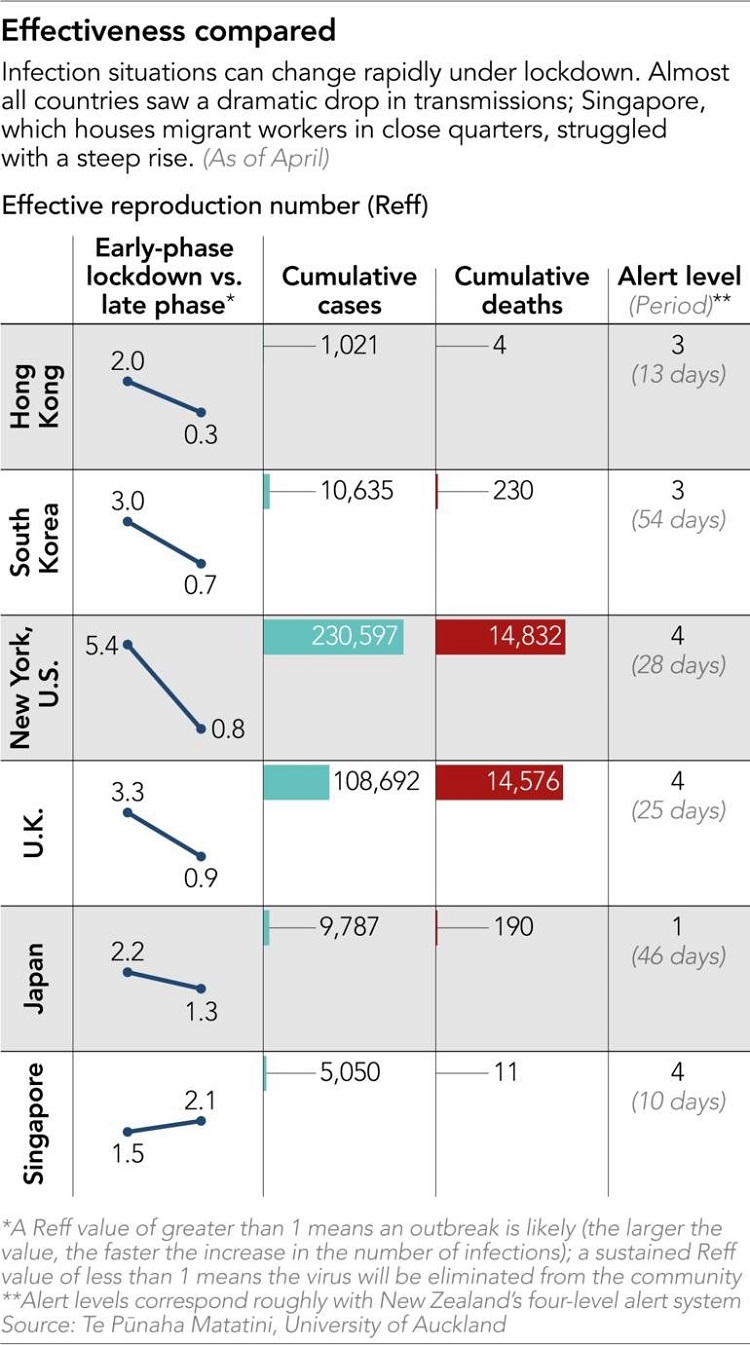
Lockdowns bring down the R by limiting the opportunities for infectious individuals to spread the disease. Getting the number to below 1 is an almost universally acknowledged prerequisite for reopening workplaces and relaxing social distancing requirements, there is wild variation around the world in what governments consider to be a safe R.
Pentagon Is Drawing Up Afghan Withdrawal Plans for Trump
The Pentagon is preparing plans for President Trump to draw down forces from Afghanistan by as soon as this autumn, defense officials said, in keeping with Mr. Trump’s call on May 26 for an American withdrawal. “We want to bring our soldiers back home,” he said at the White House, but added that there was no deadline for doing so. “We are not meant to be a police force, we’re meant to be a fighting force,” he said. The Pentagon’s plans include a series of options that range from a complete withdrawal to a partial pullout, officials said. Along with proposal to remove all troops, one option would leave approximately 5,000 troops in Afghanistan, and another plan under consideration would leave about 1,500 troops there, according to several officials. All the options would likely fundamentally change the current two-pronged U.S. strategy, which includes training and advising Afghan forces as well as conducting counterterrorism missions against Islamic State and other extremist groups. The possibility of a total withdrawal likely would lead a host of American allies who also have troops in Afghanistan to abandon the mission, U.S. officials said. But if the U.S. were to remain, even with a smaller contribution of troops, some allies likely would remain and could assume greater responsibility for training and advising, officials said.
Amid U.S. Pressure, Israel Rejects Chinese Bid for Major Infrastructure Project
Israel awarded the contract for a major infrastructure project to a local company, avoiding getting entangled in the escalating tensions between the U.S. and China. The move comes as the Trump administration presses Israel and other allies to take a tougher line on Chinese investments, particularly in areas involving a security risk. Secretary of State Mike Pompeo in Israel earlier in May warned of the possibility of such risks with regards to the Chinese bid for the plant project. The project also raised security concerns because the air base hosts U.S. missile tests. The decision prevents an immediate clash between the close allies. American officials have also voiced concerns about Chinese companies’ participation in other Israeli infrastructure projects, including the construction and operation of a new terminal by the Haifa port.While Israel remains receptive to American concerns, it also sees China as an important market for Israeli companies and products as well as a source of foreign investment. China is Israel’s third-largest trading partner, according to a report by the Institute for National Security Studies at Tel Aviv University.In a sign of its balancing act, Israel hasn’t echoed the U.S. in its criticism of China’s handling of the coronavirus pandemic.
In a first, Twitter adds fact-check warnings to Trump tweets
For the first time, Twitter has flagged some of President Donald Trump's tweets with a fact-check warning. On May 26, Twitter added a warning phrase to two Trump tweets that called mail-in ballots "fraudulent" and predicted that "mail boxes will be robbed," among other things. Under the tweets, there is now a link reading "Get the facts about mail-in ballots" that guides users to a Twitter "moments" page with fact checks and news stories about Trump's claims. In a statement, Twitter said Trump's vote-by-mail tweets "contain potentially misleading information about voting processes and have been labelled to provide additional context around mail-in ballots." While it has previously flagged tweets conveying misinformation about the COVID-19 pandemic, it has never before put warnings on tweets for any other reason. Trump 2020 campaign manager Brad Parscale accused Twitter of "clear political bias" that he said led the campaign to pull "all our advertising from Twitter months ago." Twitter has banned all political advertising since last November.
Trump does not see how Hong Kong remains financial hub: White House
U.S. President Donald Trump said on May 26, the United States was working on a strong response to China's planned national security legislation for Hong Kong and it would be announced before the end of the week. China's parliament is expected to approve a proposed security law that would reduce Hong Kong's separate legal status on May 28, calling into question the special economic status the territory currently enjoys under U.S. law. Earlier, White House spokeswoman Kayleigh McEnany said Trump was displeased by the proposed security law and found it "hard to see how Hong Kong can remain a financial hub if China takes over." Asked if this might mean an end to special economic treatment Washington affords to Hong Kong that has enabled it to maintain its position as a global financial center, McEnany said she had nothing to announce as to the precise response.Trump's economic adviser, Larry Kudlow, earlier called Beijing's actions "very disturbing." "China is making a big mistake, frankly," he said. Kudlow said Washington would welcome back any American companies from Hong Kong or China's mainland. "We will do what we can for full expensing and pay the cost of moving if they return their supply chains and their production to the United States," he said.
Xi Focus: Xi emphasizes strengthening national defense, armed forces
Commending their role in battling COVID-19, Xi attending a plenary meeting of the delegation of the People's Liberation Army and People's Armed Police Force, at the third session of the 13th National People's Congresssaid the people's armed forces have once again proven themselves to be heroic forces that can be fully trusted by the Party and the people. Xi said the epidemic has brought a profound impact on the global landscape and on China's security and development as well. He ordered the military to think about worst-case scenarios, scale up training and battle preparedness, promptly and effectively deal with all sorts of complex situations and resolutely safeguard national sovereignty, security and development interests. Xi demanded reform and innovation to address new situations and problems exposed in the epidemic and ordered accelerating the research and development on COVID-19 drugs and vaccines by tapping the advantages of military medical research. Noting that this year marks the end of the 13th five-year plan for military development, Xi said extraordinary measures must be taken to overcome the impact of the epidemic to ensure major tasks on the military building are achieved.
Philippines bolsters posture in South China Sea after navy ship docks at new Spratly Islands’ port
Two recent developments in the South China Sea are poised to enhance the Philippines’ position in the increasingly tense flashpoint and allay criticism that President Rodrigo Duterte’s administration is lacking resolve in defending the country’s interests. On May 13, Philippine Navy ship BRP Ivatan became the first vessel to dock at the nearly-completed port of Pag-asa (Thitu Island), Manila’s largest occupied feature in the Spratly Islands in the disputed sea. And last weekend, the country’s first modern multirole frigate from South Korea, BRP Jose Rizal, arrived in Subic naval base. Neglect, ascendancy of internal security and overemphasis on diplomatic and legal approaches had contributed to the erosion of Manila’s initial advantage. But work on the port of Pag-asa and upgrades to the island’s airstrip progressed despite the alleged swarming of Chinese vessels for over a year. This shows Manila’s resolve to boost its posture in a long-running regional flashpoint even as ties with Beijing have improved in recent years. In hindsight, the soft landing Manila took after its sweeping arbitration victory in 2016 and a bilateral consultation mechanism established since then did more than just stave off possible conflict.
Coronavirus spread 'still accelerating' in Brazil, Peru, and Chile: WHO
International health authorities expressed concern on May 26 over signs the spread of the new coronavirus is still accelerating in Brazil, Peru and Chile. "In South America, we are particularly concerned that the number of new cases reported last week in Brazil was the highest for a seven-day period, since the outbreak began," said Carissa Etienne, director of the Washington-based Pan American Health Organization (PAHO). "Both Peru and Chile are also reporting a high incidence, a sign that transmission is still accelerating in these countries," she said at a weekly briefing. The Pan American Health Organization, which serves as the regional office for the World Health Organization, has been monitoring the pandemic in Latin America and the Caribbean. With about 730,000 cases - out of 5 million globally - and more than 39,500 deaths from COVID-19 reported as of May 25, Latin America has outpaced Europe and the United States in the number of daily infections.
Economic
Facebook Executives Shut Down Efforts to Make the Site Less Divisive
Facebook had kicked off an internal effort to understand how its platform shaped user behaviour and how the company might address potential harms. In 2016, Facebook had been grappling with whether its mission to “connect the world” was good for society. The high number of extremist groups was concerning, an internal presentation said. Worse was Facebook’s realization that its algorithms were responsible for their growth. The 2016 presentation states that “64% of all extremist group joins are due to our recommendation tools” and that most of the activity came from the platform’s “Groups You Should Join” and “Discover” algorithms: “Our recommendation systems grow the problem.” But in the end, Facebook’s interest was fleeting. Mr. Zuckerberg and other senior executives largely shelved the basic research, according to previously unreported internal documents and people familiar with the effort, and weakened or blocked efforts to apply its conclusions to Facebook products. Americans were drifting apart on fundamental societal issues well before the creation of social media; decades of Pew Research Center surveys have shown. But 60% of Americans think the country’s biggest tech companies are helping further divide the country, while only 11% believe they are uniting it, according to a Gallup-Knight survey in March.
Boeing and Airbus Study How Coronavirus Behaves During Air Travel
Boeing Co. and Airbus are researching the new corona virus’s behaviour inside jetliners, part of an industry push to curb risks that have brought air traffic to a near standstill. Their work will involve academics, engineers and medical experts expected to examine new measures to prevent disease transmission on airplanes, according to the companies and people involved in their discussions. The effort to better understand air-travel risks during the pandemic comes as airlines try to reassure nervous passengers that masks and filtered cabin air provide reliable protection from infection in flight. Global air traffic has plunged as governments closed borders and ordered would-be fliers to stay home. Boeing said it is developing computer models that simulate the cabin environment and could ultimately inform decisions by airlines, health officials and regulators on how to prevent the virus’s spread. “We’re taking steps to better understand any potential risks,” a spokesman said. Airbus said the plane maker is exchanging information with universities in the U.S. and other countries. Airbus engineers are also exploring other methods of reducing the spread of the virus including self-cleaning materials, a disinfectant that can last for five days and touchless devices in lavatories, the company said.
Japan remains world's top creditor at end of 2019
Japan remained the world's largest creditor at the end of 2019, with the net balance of external assets held by its government, companies and individual investors hitting a record 364.53 trillion yen ($3.40 trillion), the Finance Ministry said on May 26. The figure, up 6.8 percent from a year earlier and the highest since comparable data became available in 1996, reflected increased direct investments abroad by Japanese firms and a rise in prices of foreign stocks held by domestic investors.Japan was the world's largest holder of overseas net assets for the 29th consecutive year, the ministry said. A ministry official refrained from presenting an outlook for the possible impact of the novel coronavirus pandemic on the 2020 balance. In the reporting year, Germany had the world's second-largest net external assets of 299.83 trillion yen at the end of 2019, followed by China with 231.77 trillion yen. The United States was the biggest net external debt holder with 1,199.38 trillion yen, according to the ministry. Japanese overseas liabilities rose 8.4 percent to a record 733.21 trillion yen amid an increase in volume and value of Japanese securities held by foreign investors.
Russia plans to drill oil wells and pump in 2022 when OPEC+ deal expires
The Russian government has tentatively approved a plan on drilling idle oil wells in order to prepare for restoration of oil production once the global deal on output curbs expires in 2022, according to a government statement published on May 26. The office of First Deputy Prime Minister Andrey Belousov said a government commission met on May 26 and agreed to support proposals of the energy and finance ministries to help oil producers to set up a fund of “unfinished oil wells”. The statement cites Energy Minister Alexander Novak, who said that the oil producers will order services and equipment from the Russian oil servicing companies with the financial help of the local banks for drilling wells. The wells will be drilled in 2020-2021, but they will stay idle until April 2022 when the current deal expires. The wells will be subsequently launched during next few years in line with the expected growth in demand. Russia has agreed to cut its oil production by around 2.5 million barrels per day (bpd) to 8.5 million bpd, lowest for more than a decade, in May and June as part of the deal with the Organization of the Petroleum Exporting Countries.
Global airlines body raises alarm over bailout debts
Global airline debts are set to rise by more than a quarter to $550 billion by the end of the year after governments announced $123 billion in total support, the International Air Transport Association said on May 26. With the amount of new equity raised dwarfed by debt the airlines have taken on, their balance sheets will on average be weaker when they emerge from the crisis. That means the industry’s woes will last longer than the time it takes for passenger demand to recover, IATA said. “If we don’t see any improvement in the restart period, we are certainly fearful that we are going to see a number of failures.” The warning came as Chile’s LATAM filed for U.S. bankruptcy protection.IATA data showed the lion’s share of bailouts came in the United States and Western Europe, where Germany has agreed a 9-billion-euro package for Lufthansa. IATA meanwhile urged governments to keep politics out of border controls after Britain and France became embroiled in a row over quarantine rules. France has signalled it will impose equivalent measures after Britain announced 14-day quarantine for people arriving from mainland Europe. De Juniac said border restrictions related to the epidemic should be driven by science.
NASA releases basic principles for moon exploration pact
NASA has set the stage for a global debate over the basic principles governing how humans will live and work on the moon, as it released the main tenets of an international pact for moon exploration called the Artemis Accords. “What we’re doing is we are implementing the Outer Space Treaty with the Artemis Accords,” NASA administrator Jim Bridenstine told Reuters, referring to a 1967 international pact that emphasizes that space should be used for peaceful rather than military uses. The framework will be used as an incentive for nations to adhere to U.S. norms of behaviour in space, he added. “It applies to low Earth orbit, it applies to the moon as well,” Bridenstine said. The accords also require countries to adopt standards of the United Nations Space Debris Mitigation Guidelines — which govern the prevention of hazardous space debris — and the Registration Convention, which would require countries to provide orbital details of their “space objects.” The U.S. Congress passed a law in 2015 allowing companies to own the resources they mine in outer space, but no such laws exist in the international community. The Artemis Accords, consistent with the Trump administration’s space policy, appear to clear the way for companies to mine the moon under international law and urge countries to enact similar national laws that would bind their private sector’s space operations.
China's production resumption drives Belt and Road again
While delivering the government work report at the third session of the 13th National People's Congress (NPC), the national legislature, on May 22, Chinese Premier Li Keqiang said the joint efforts to pursue the BRI have yielded fresh results, and emphasized the need to focus on high-quality joint building of the initiative. "COVID-19 has affected Belt and Road cooperation to some extent, but the impact is temporary and limited," Chinese State Councillor and Foreign Minister Wang Yi said when answering questions from Chinese and foreign media on the sidelines of the ongoing NPC meeting on May 24. "From an overall and long-term perspective, COVID-19 will only strengthen and re-energize Belt and Road cooperation and open up new possibilities," said Wang. Despite the impact of COVID-19, Chinese investment in Belt and Road partner countries increased by 11.7 percent in the first quarter and trade with them went up by 3.2 percent, he added. As the second largest economy in the world, China has the largest industrial system with the most complete categories, strong production capabilities and complete supporting sectors. Its economic activities have gradually emerged from shutdowns by restarting production at factories and providing components, materials, as well as major subsystems to manufacturers worldwide.
Macron unveils US$8.8b French auto rescue, champions electric cars
President Emmanuel Macron on May 26 announced an eight billion euro (US$8.8 billion) plan to revive France's auto industry by making it the European leader in electric cars, boosting a sector brought to its knees by the coronavirus. Macron said the package would include one billion euros in subsidies to encourage purchases of electric and hybrid cars, and set a target of France producing a million green cars annually by 2025. The "historic" intervention will aim to turn France's rechargeable car industry into Europe's biggest, the president said. Visiting a car factory in Etaples in northern France, Macron said his government would seek to boost flagging customer demand with a subsidy of 7,000 euros for each individual buying an electric car, 5,000 for each company purchase, and 2,000 per hybrid rechargeable car. Starting on Jun 1, there would also be an aid of 3,000 euros for converting from a petrol-fuelled car to a less-polluting one - and as much as 5,000 euros to upgrade to an electric vehicle, the president said. He said that some three quarters of French people would be eligible for the incentives. "In total, the state will provide a bit more than 8 billion euros in aid to the sector," said Macron.
For Further Reading:
- China Rules Out Animal Market and Lab as Coronavirus Origin, https://www.wsj.com/articles/china-rules-out-animal-market-and-lab-as-coronavirus-origin-11590517508
- French tests show mild infection protects strongly against coronavirus, https://www.ft.com/content/bf51fe92-00e8-4d52-ae42-4e7cbcd36367
- Cautious East, wild West: Nations diverge on right way to exit lockdown, https://asia.nikkei.com/Spotlight/Cover-Story/Cautious-East-wild-West-Nations-diverge-on-right-way-to-exit-lockdown
- Pentagon Is Drawing Up Afghan Withdrawal Plans for Trump, https://www.wsj.com/articles/pentagon-is-drawing-up-afghan-withdrawal-plans-for-trump-11590533555
- Amid U.S. Pressure, Israel Rejects Chinese Bid for Major Infrastructure Project, https://www.wsj.com/articles/amid-u-s-pressure-israel-rejects-chinese-bid-for-major-infrastructure-project-11590502529?mod=world_major_2_pos1
- In a first, Twitter adds fact-check warnings to Trump tweets, https://mainichi.jp/english/articles/20200527/p2g/00m/0in/021000c
- Trump's Hong Kong response to be announced by end of week, https://asia.nikkei.com/Politics/Trump-s-Hong-Kong-response-to-be-announced-by-end-of-week
- Xi Focus: Xi emphasizes strengthening national defense, armed forces, http://www.xinhuanet.com/english/2020-05/26/c_139089760.htm
- Philippines bolsters posture in South China Sea after navy ship docks at new Spratly Islands port, https://www.scmp.com/week-asia/opinion/article/3086253/philippines-bolsters-posture-south-china-sea-after-navy-ship
- Coronavirus spread 'still accelerating' in Brazil, Peru, Chile: WHO, https://www.channelnewsasia.com/news/world/covid-19-coronavirus-spread-accelerating-brazil-peru-chile-12772604
- Facebook Executives Shut Down Efforts to Make the Site Less Divisive, https://www.wsj.com/articles/facebook-knows-it-encourages-division-top-executives-nixed-solutions-11590507499?mod=hp_lead_pos5
- Boeing and Airbus Study How Coronavirus Behaves During Air Travel, https://www.wsj.com/articles/boeing-and-airbus-study-how-coronavirus-behaves-during-air-travel-11590498000?mod=hp_lead_pos10
- Japan remains world's top creditor at end of 2019, https://mainichi.jp/english/articles/20200526/p2g/00m/0bu/058000c
- Russia plans to drill oil wells and pump in 2022 when OPEC+ deal expires, https://in.reuters.com/article/global-oil-russia-wells/russia-plans-to-drill-oil-wells-and-pump-in-2022-when-opec-deal-expires-idINKBN2322RD
- Global airlines body raises alarm over bailout debts, https://in.reuters.com/article/airlines-iata/global-airlines-body-raises-alarm-over-bailout-debts-idINKBN23225J
- NASA releases basic principles for moon exploration pact, https://in.reuters.com/article/space-exploration-artemis/star-trek-not-star-wars-nasa-releases-basic-principles-for-moon-exploration-pact-idINKBN22S07M
- Xinhua Headlines: China's production resumption drives Belt and Road cooperation, fuels global growth, http://www.xinhuanet.com/english/2020-05/26/c_139089734.htm
- Macron unveils US$8.8b French auto rescue, champions electric cars, https://www.channelnewsasia.com/news/business/macron-french-auto-rescue-champions-electric-cars-coronavirus-12772386
Image Source: https://cdn.pixabay.com/photo/2020/05/10/05/04/covid-19-5152317_960_720.jpg

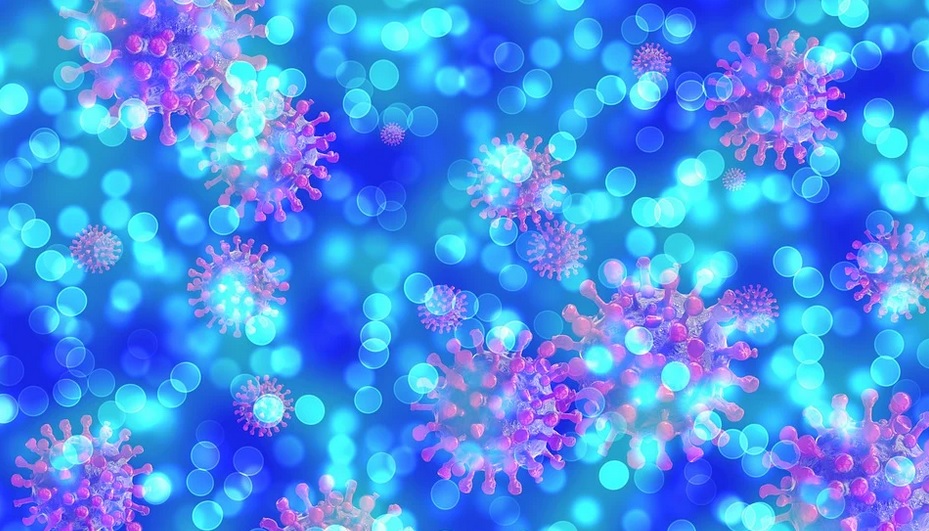



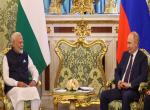


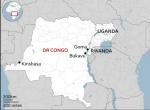
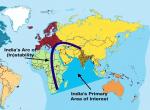

Post new comment